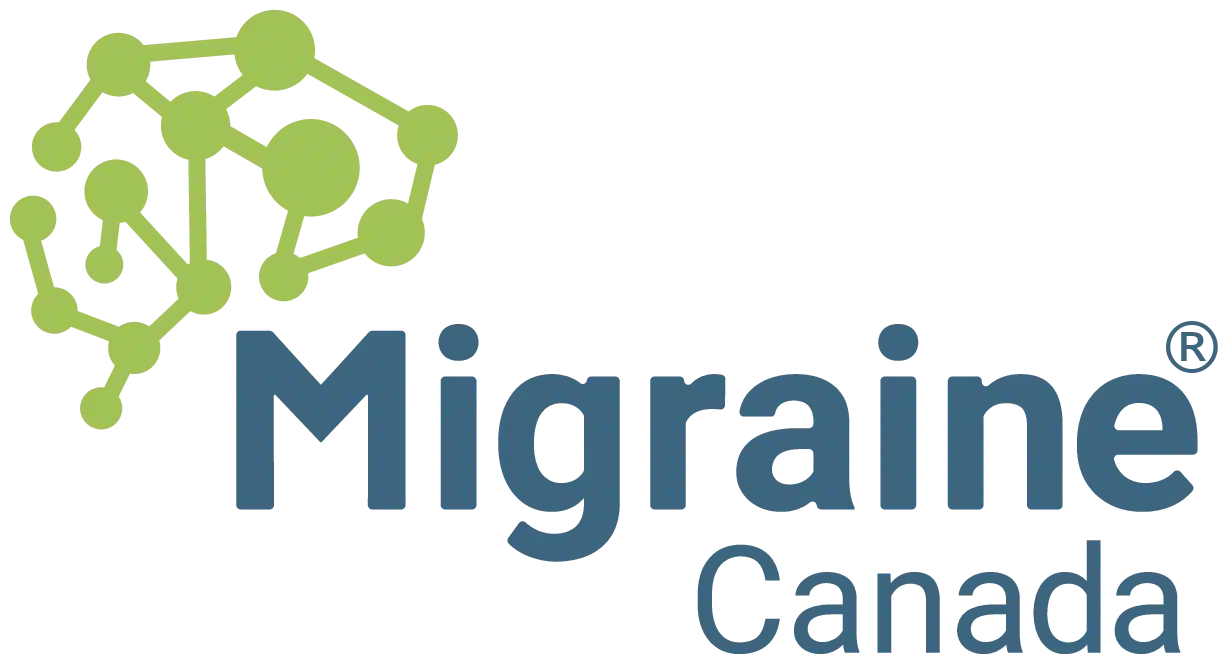Acute Treatments
Acute treatments focus on stopping a migraine attack once it has commenced. This is distinct from preventive treatments, which aim to reduce migraine frequency.
On this page, you will find:
Tips for Controlling Migraine Attacks with Acute Treatments
List of Acute Treatments Available in Canada
Common Questions About Acute Medications for Migraine Attacks
Migraine Canada Videos, Articles & Resources about Acute Treatments
Table of Acute Treatments: Classes, How They Work, and Side Effects
Neuromodulation devices can also be used to treat migraine attacks. For more information, please see our Neuromodulation Device page or our webinar with Dr. Alex Melinyshyn.
Tips for Effectively Controlling Migraine Attacks Using Acute Treatments:
- Aim for Relief: The goal is to return to function or at least a decrease in symptoms.
- Explore Options: Work with your care provider to try different treatments.
- Track Patterns & Progress: Be sure to observe your attacks and be aware of how they start and evolve. Use a migraine diary (Post #5: How to Use a Migraine Diary) or our Canadian Migraine Tracker App(app landing page)) to record results.
- Early Intervention: Treat early, it will increase your success rate.
- Treatment Combinations: For severe attacks, discuss medication combinations (NSAID and Triptans) with your healthcare provider.
- Address Nausea: Use specific medications to treat nausea if you experience it
- Alternative Methods: Consider nasal sprays, injections, and other non-pill options for severe attacks.
- Natural Remedies: Techniques like hot/cold therapy, mint rollers, acupressure, and breathing exercises can be beneficial.
- Tailored Approach: Use different treatment options for attacks of different severity.
- Prevent Overuse: Avoid frequent medication use and consider preventive strategies.
- Explore Gepants: These medications are specifically indicated for migraine and do not lead to medication overuse headache.
- Avoid Cannabis and Opioids: Cannabis is better avoided for migraine treatment until more research is available. Avoid opioids, they should be only a last resort
Frequently Asked Questions
What are acute treatments for migraine?
Acute treatments focus on stopping a migraine attack once it has commenced, distinct from preventive treatments that aim to reduce migraine frequency.
What is the goal of an acute treatment?
Efficient and reliable acute treatment aims to restore your ability to resume daily activities within 1 to 2 hours. The medication should be effective, reliable, and have no significant side effects. If you have severe attacks, the goal may be to decrease symptoms (pain, nausea, sensory sensitivity, others) even if a return to function is not possible.
How can I tell the difference between migraine attacks and tension headaches?
Identifying migraine symptoms such as light sensitivity, irritability, nausea, and throbbing pain can help distinguish migraine attacks from tension headaches. Recognizing these warning signs can aid in early treatment, potentially increasing success rates. Many migraine attacks start at a mild degree but then deteriorate.
How will I find the right acute treatments for me?
Since each patient responds differently, finding the right acute treatment may involve trying various medications and combinations. It is rare for a treatment to be effective for 100% of attacks, so we suggest that you try each new medication for a few three separate migraine attacks. Tracking responses in a migraine diary and evaluating benefits and side effects can guide treatment decisions in consultation with your healthcare provider.
When should I treat the migraine attack? Sometimes I try to wait to see if it will pass.
Treating the attack early increases your chances of success and return to function. For some people, their migraine attacks are always the same, but others have different types, some rising quickly, others slowly. Some start during sleep. The sequence of symptoms may vary, but once an attack is full blown, it becomes more difficult to stop it. In the case of gepants, studies have shown that treating during your prodrome (if you have a recognizable and reliable one) can be beneficial.
My migraine attacks come on quickly, or I wake up with them. What should I do?
Consider asking your doctor for a medication that does not need to be absorbed by the stomach, such as a nasal spray, suppository, or injection. Such options may be effective.
Can I combine several acute treatments?
The different categories of acute medications may be taken together to treat different parts of the attack. For example, you may need something for pain and nausea. Different migraine medications act through various mechanisms, and combining them may increase your chances of success. Different attacks may require different combinations.
What about rebound headache? How many days per month can I safely treat?
It is crucial to exercise caution if experiencing headaches more than two days a week. The risk of drug-induced (rebound or medication overuse) headache starts at 10 days per month, and gets higher with higher frequency. If you have headaches more often than this, you may need a preventive medication to help reduce the frequency of your migraine attacks. As a note, gepants taken acutely do not induce rebound, they could even add a preventive effect.
Can I use opioid medications for migraine?
Opioids are usually avoided for migraine treatment because they are more likely to result in a temporary response where the migraine returns in a few hours or the next day. The brain becomes more sensitized to pain following the use of opioids and there is greater risk for rebound headaches. The pattern of migraine often becomes more frequent and more severe in people who use opioids.
FAQ References
References:
- Worthington I, Pringsheim T, Gawel MJ, Gladstone J, Cooper P, Dilli E, et al. Canadian Headache Society Guideline: acute drug therapy for migraine headache. Can J Neurol Sci. 2013;40(5 Suppl 3):S1-s80.
- Gilmore B, Michael M. Treatment of acute migraine headache. Am Fam Physician. 2011;83(3):271-80.
- Mayans L, Walling A. Acute Migraine Headache: Treatment Strategies. Am Fam Physician. 2018;97(4):243-51.
- Rapoport AM. Acute treatment of migraine: established and emerging therapies. Headache. 2012;52 Suppl 2:60-4.
More Resources on Acute Treatments
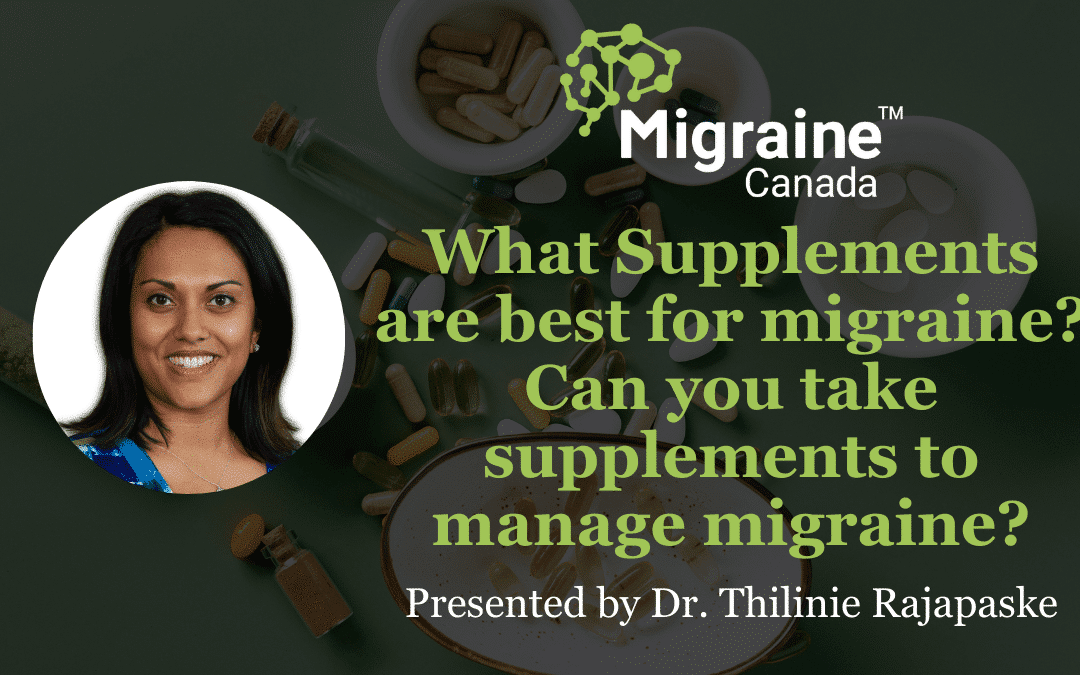
What are the best supplements for migraine management?
Join Dr. Thilinie Rajapakse, Assistant Professor at the University of Alberta and a distinguished neurologist specializing in headache disorders, as she delves into the pivotal role of supplements...
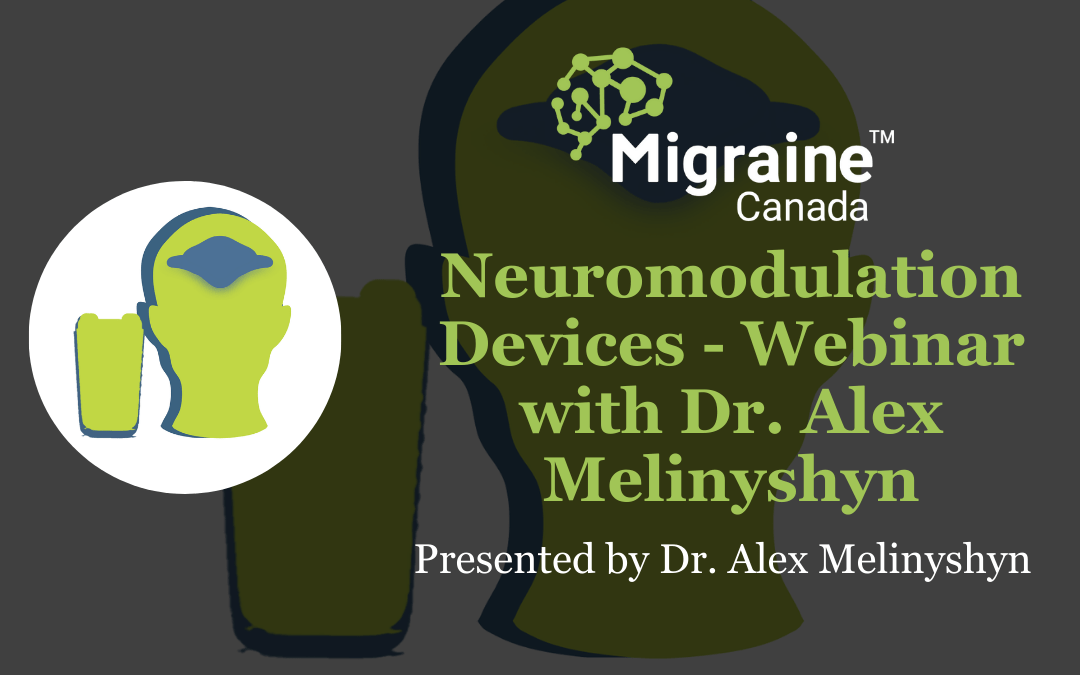
Neuromodulation Devices Webinar
Welcome to our discussion on non-invasive strategies for managing migraine. As the title suggests, we're diving into effective alternatives to traditional medications, exploring devices and tools...
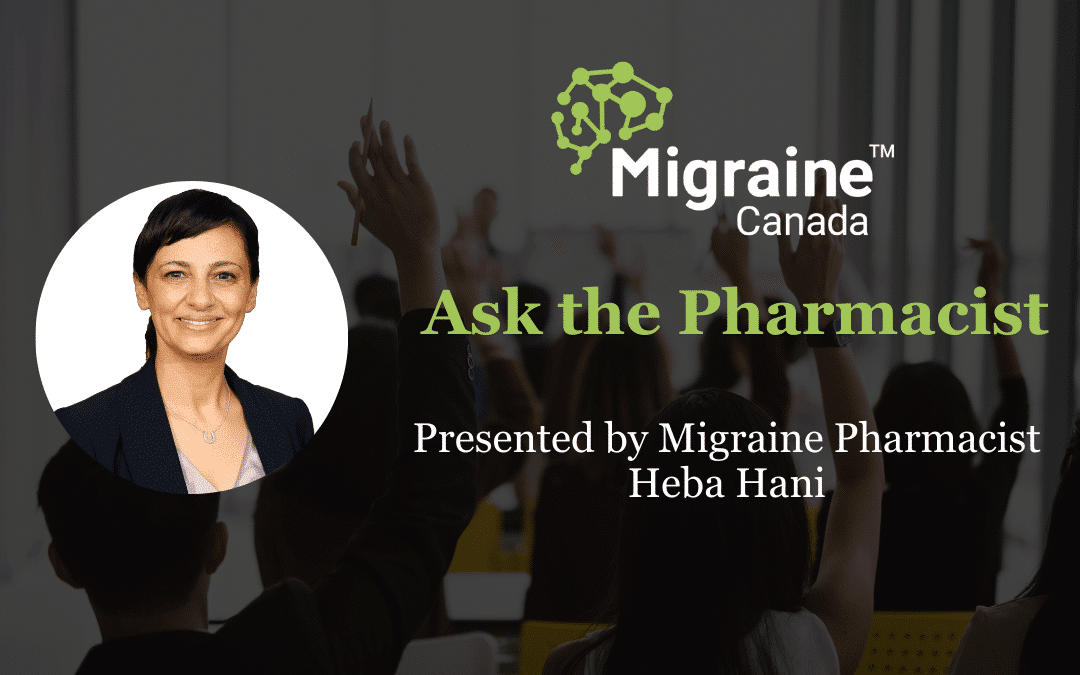
Ask the Pharmacist
Explore the pivotal role of the Migraine Pharmacy Network in optimizing patient care in this insightful Facebook Live Q&A with Migraine Pharmacist Heba Hani. Join Heba as she discusses how the...
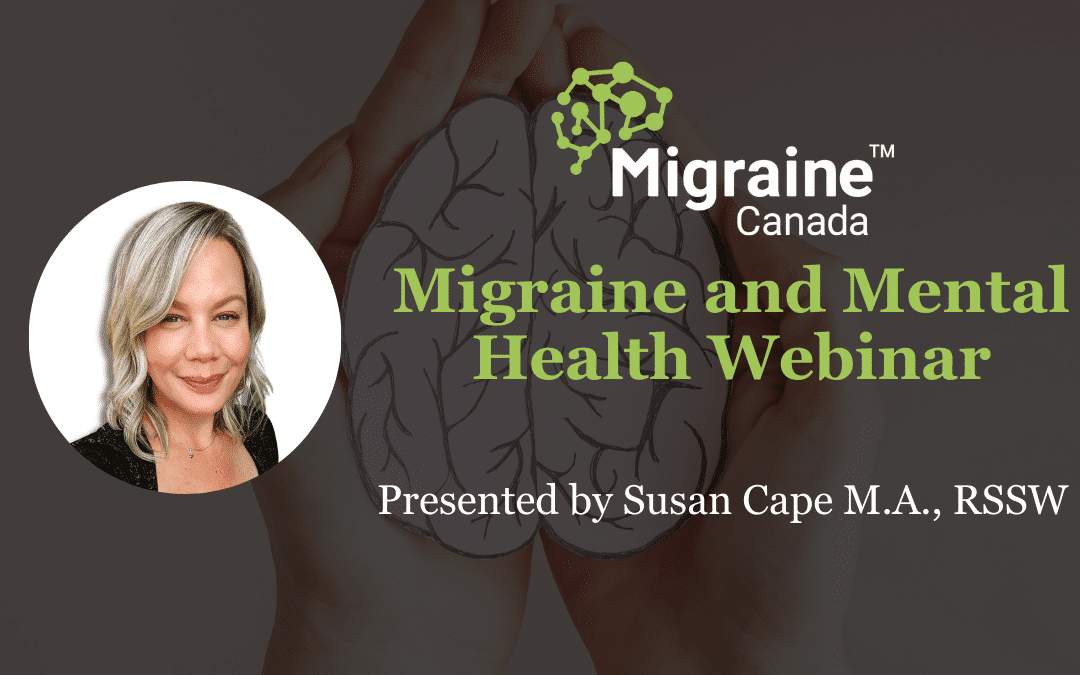
Migraine and Mental Health Webinar
Discover the nuanced relationship between migraine and mental health in this insightful webinar hosted by Migraine Canada. Recorded on March 22, 2021, Susan Cape delves into the ways migraine...
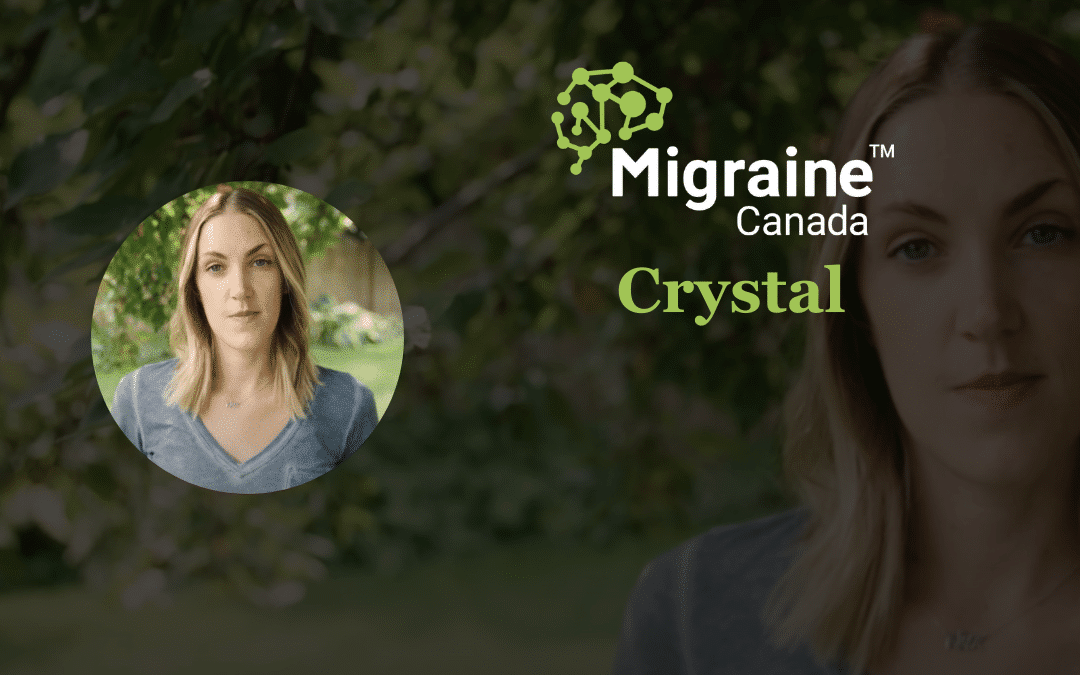
Crystal’s Story
Explore the profound journey of Crystal, a 33-year-old mother battling severe chronic migraine. In this heartfelt video, Crystal bravely shares her daily struggle with migraine, describing it as if...
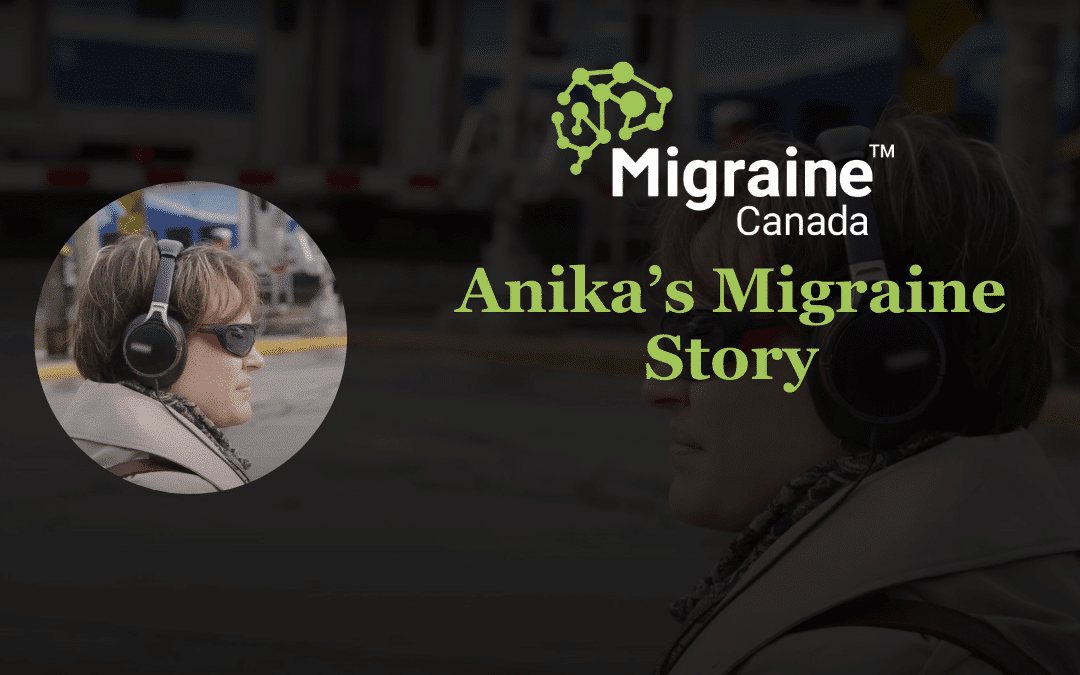
Anika’s Migraine Story
Meet Anika, who has navigated life with migraine for the past 16 years. For her, neon lights pose a significant trigger. Anika combats this by wearing specially designed anti-glare sunglasses...
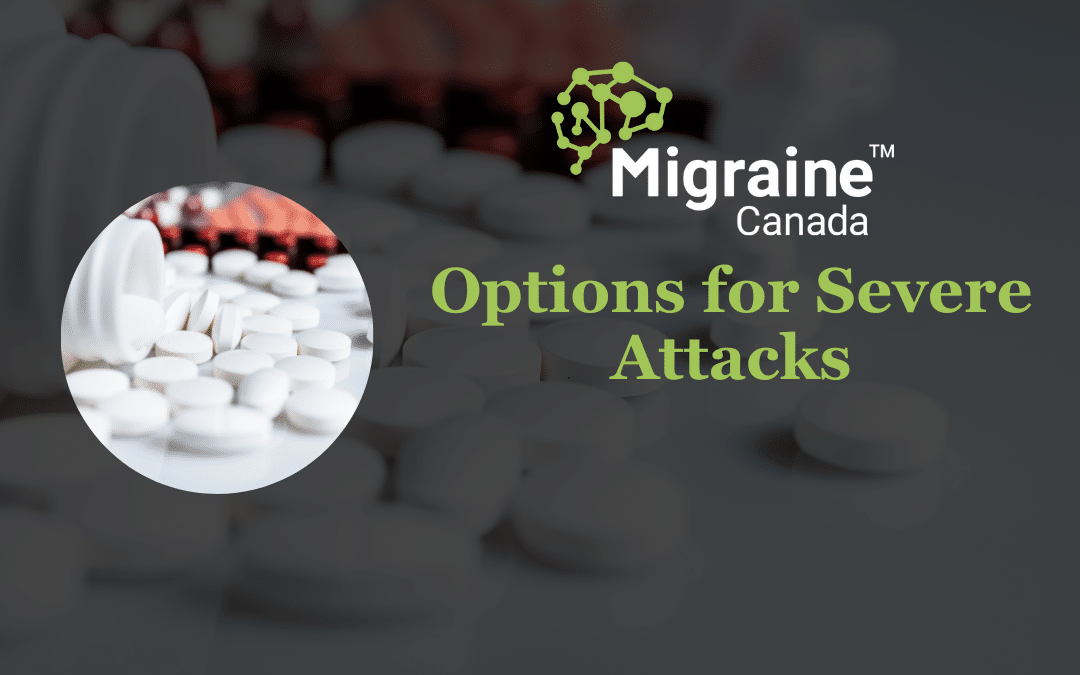
Options for Severe Migraine Attacks
For severe migraine attacks, oral pills may be too slow to work. Treating a migraine is a race against pain, but pills need to be digested to be absorbed. During a migraine, the gut system is...
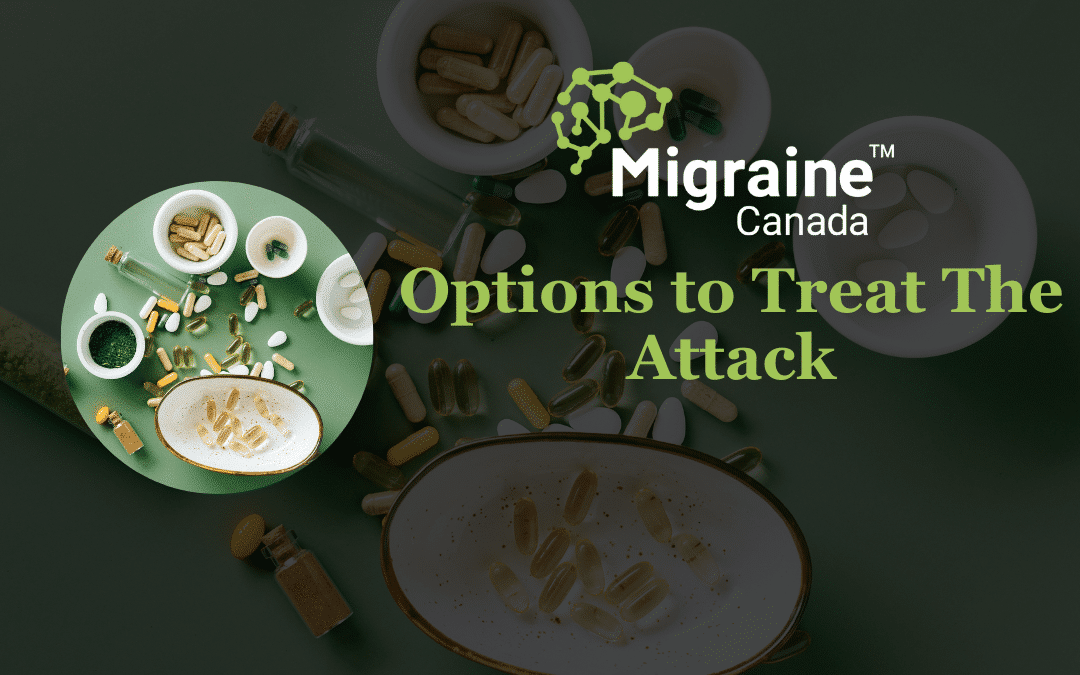
Options to Treat a Migraine Attack
This video presents the drugs available to treat a migraine attack, based on the Canadian Guidelines for Acute Migraine Treatment. When a migraine starts, the priority is clear: make it stop. With...
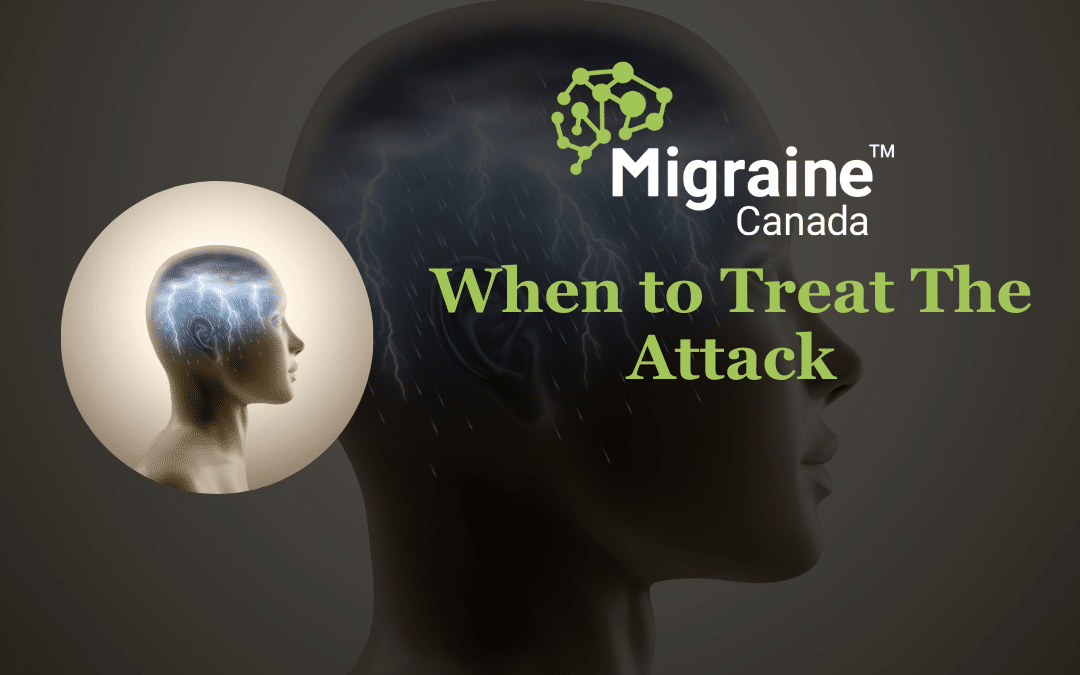
When To Treat a Migraine Attack
Treating a migraine is like a race against pain. Caused by neurogenic inflammation, a migraine is akin to a fire in the brain. Waiting to treat a migraine decreases your chances of breaking the...
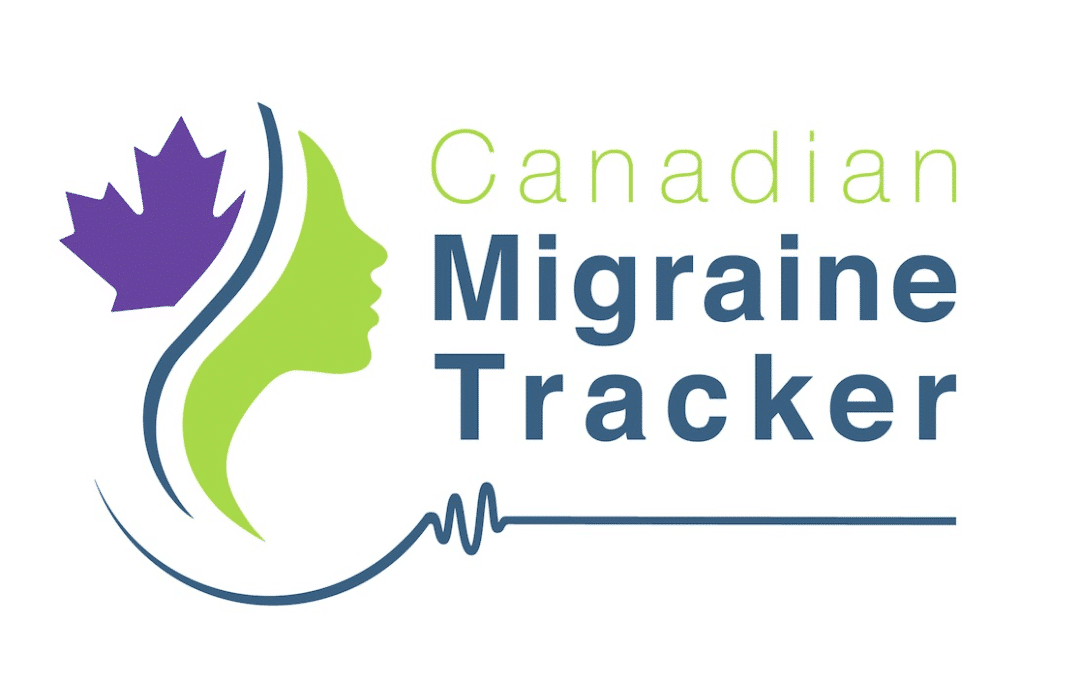
The Canadian Migraine Tracker: A New Option for Headache Monitoring
Looking to take control of your migraine management? Learn how the Canadian Migraine Tracker, a migraine diary app, can support your journey with migraine in this post.Using a Migraine Diary A...
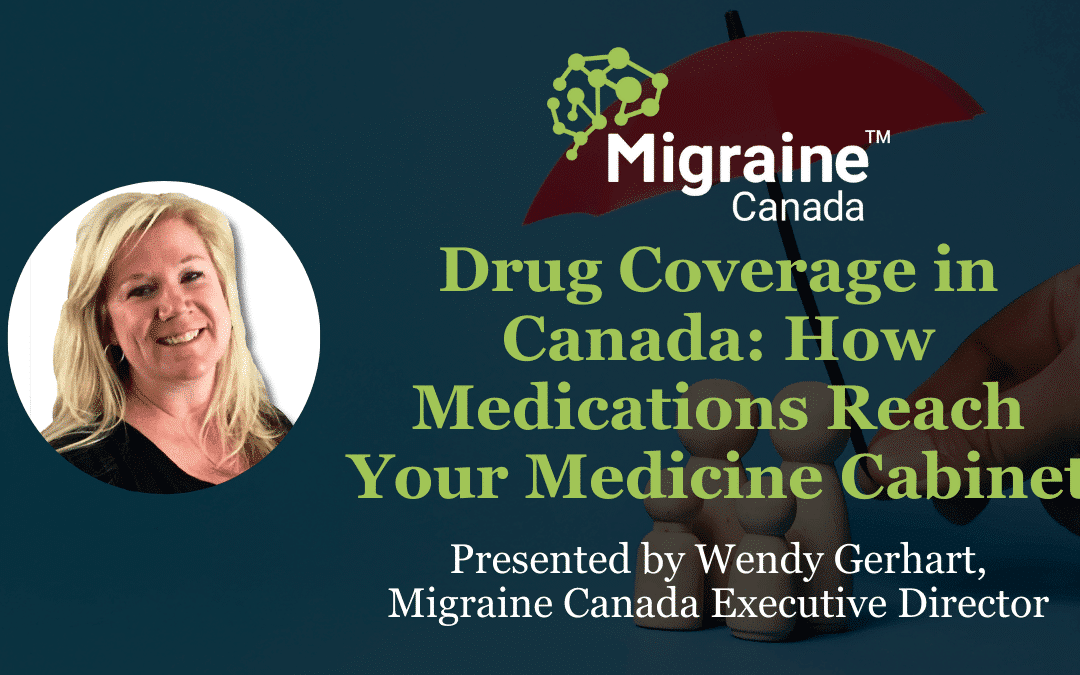
Drug Coverage in Canada: How Medications Reach Your Medicine Cabinet
Explore the intricacies of drug coverage in Canada with our enlightening webinar, "Drug Coverage in Canada: How Medications Reach Your Medicine Cabinet." Presented by Migraine Canada, this webinar...
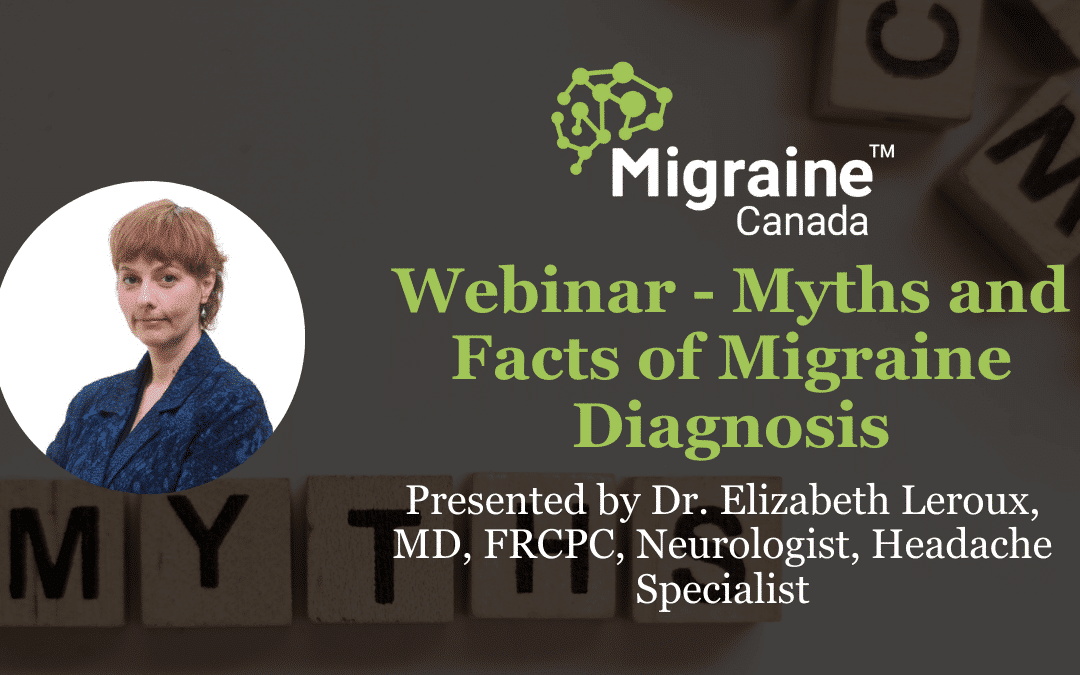
Myths and Facts of Migraine Diagnosis – Webinar
Discover the truth behind migraine diagnosis with Dr. Elizabeth Leroux, a leading neurologist based in Montreal. In this insightful webinar, Dr. Larue navigates through common myths and facts...
